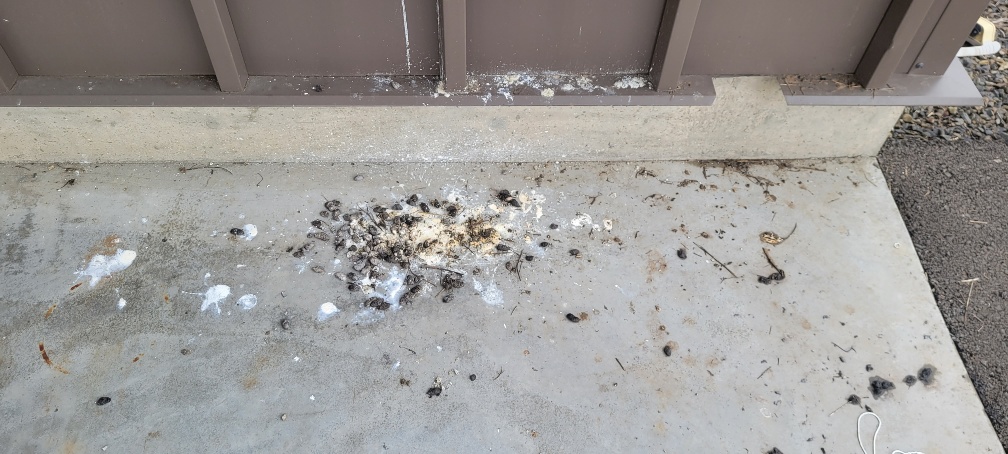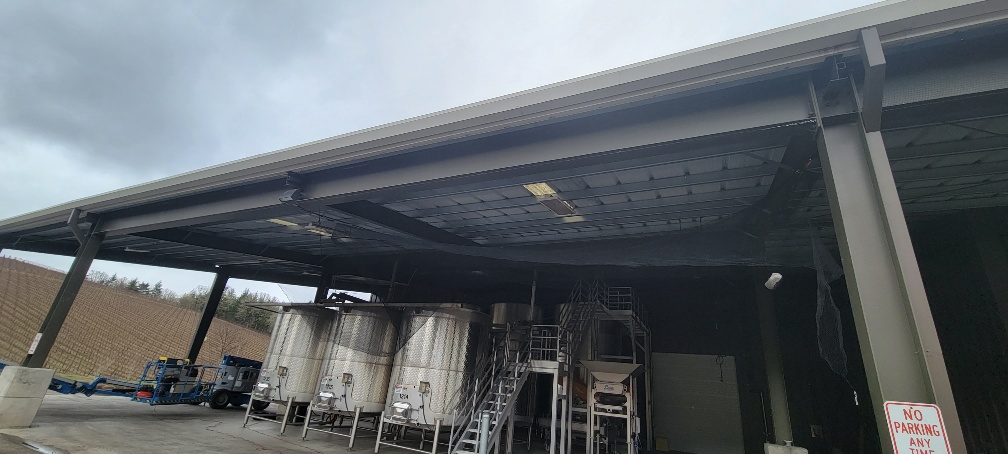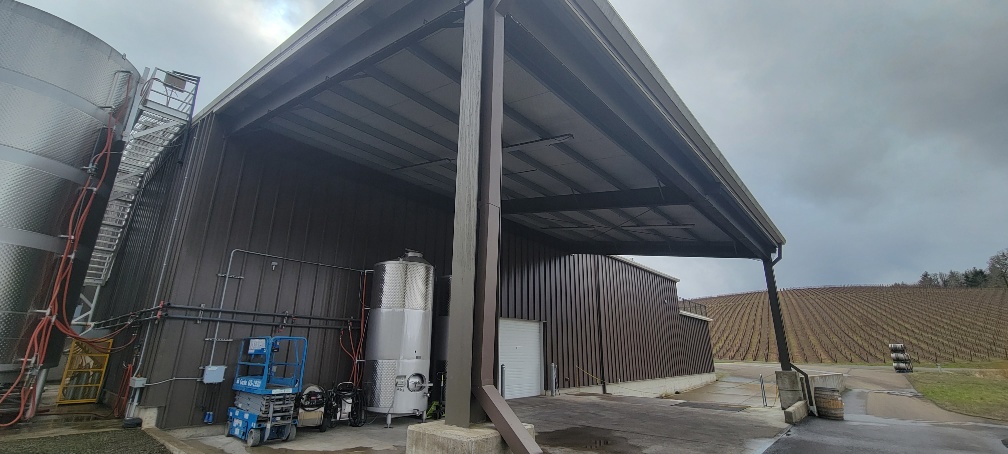Four Graces Winery: Putting A Cork in a Bird Problem

Sprague Pest Solutions Delivers Solutions for Oregon's The Four Graces Winery
Challenge
Vineyard owners and winemakers in Oregon and across the globe are familiar with vineyard pests, especially pest birds including pigeons, starlings, house finches and sparrows.
How serious a problem are pest birds for vineyards and wine production facilities? A study conducted by the Ontario Ministry of Agriculture, Food and Rural Affairs determined that a flock of 5,000 starlings can consume up to one ton of food over a 10-day period. This kind of crop loss can cost vineyard owners significant money in lost revenue and brand damage.
Not only can pest birds wreak havoc by destroying the grapes, but they can also be responsible for secondary spoilage through yeast, bacteria, and insect damage. Bird damage has also been known to result in unnecessary, early harvests and subsequent downgrading of premium fruit.
Why are birds a problem in vineyards and around production facilities? Tim Jones, winemaker at The Four Graces Winery in Dundee, Oregon, a Sprague Pest Solutions client, says birds enjoy grapes as much as the human visitors to the winery but they are not as patient to wait for the finished product.
“Our location near ponds and forests makes our 40 acres of vineyards a prime food source for a variety of migratory birds,” says Jones, who has been with The Four Graces Winery since 2018. “Not only do they threaten the grapes but their presence in and around our production facility represents a sanitation issue.”

Bird droppings on the ground at The Four Graces Winery were not acceptable. It not only ruined the visitor experience, but damaged the winery’s brand.
Jones noticed a spike in bird activity this spring and knew deterring them from establishing nests was critical to prevent a long-term problem, one that could carry over into the fall harvest season when production is in full swing.
“We are an audited facility but sustainably certified as well,” says Jones. “We have strict internal processes for sanitation and the threat of failing an audit is not an option.”
In addition to the sanitation threat, the aesthetic aspects were also a factor.
“Summer and fall are peak tourism season and having guests arrive for a tasting and seeing bird droppings on the ground or on a table is not acceptable,” adds Jones. “Not only would it ruin their experience, but it damages our brand.”
Solution
During a regular service visit Sprague Pest Control’s route manager noticed The Four Graces Winery team had installed visual deterrents (i.e., ‘scare eye’ devices) and netting to deter birds from the canopies over both the receiving dock and crush pad.
Both canopies – which are 30 feet off the ground – were subject to roosting, nesting and contamination, and the winery’s DIY efforts were not working. The netting that was installed did not have the edges sealed and made the situation worse. Adding to the challenge was that the crush pad was a larger and more complicated structure with tanks, elevated walkways, etc.

The netting that was installed did not have the edges sealed and made the situation worse.
The route manager suggested Keith Rowney, Sprague’s special services manager and a certified bird control specialist, look at the facility to see what could be done.
Following a thorough inspection, Rowney recommended removing the old netting and deterrents and installing new architectural bird netting in both areas. This would permanently exclude all pest birds from perching, roosting, and nesting in the canopy structures, solving the contamination and food safety risk.
More restrictive enforcement of audit standards by third-party auditors and inspectors, and an emphasis on the safe stewarding of food and packaging materials from farm to table, has food processors paying closer attention to their bird management protocols.
“Bird management work in and around food processing facilities, like wineries, has taken on added importance under the Food Safety Modernization Act,” says Rowney.
Rowney says a pro-active approach using deterrents and exclusion practices, and following good sanitation and food storage practices is critical.
“There is a heightened awareness of the risks birds pose to commercial food processing facilities and auditors and inspectors are more likely to recognize those risks and act on them during an audit or inspection,” says Rowney.
Result
Sprague installed the netting this spring and the early results have been positive. Jones has peace of mind knowing the winery’s receiving dock and crush pad are not at risk. He also knew winery visitors would not be confronted with the sight of bird droppings as they were enjoying The Four Graces’ latest release.

Sprague installed new architectural bird netting that will permanently exclude all pest birds from perching, roosting, and nesting in the canopy structures.
Jones knew having the netting installed would be a sizable portion of his budget, but he knew it was the right choice.
His conversation with ownership was that there were no easy solutions, and the band-aid approach was not working. They agreed to make the investment, have the work done professionally and done right the first time.
“We won’t have to worry about bird risks down the road during harvest season,” says Jones. “The investment will pay for itself moving forward and Sprague managed the process with professionalism from start to finish.”
Tips to Keep Wine Production Facilities Bird-Free
What steps can winery owners and managers take to keep their production facilities bird-free? Sprague’s Keith Rowney says birds require the deepest and widest toolbox of any pest to manage, and offers the following tips:
- Look beyond the four walls of your facility for bird issues. Exposed stacks of shipping pallets or shipping containers outside a structure with droppings on them could cause you to fail an audit.
- Any bird sightings on fixtures or equipment – inside or outside – could be a cause for concern with auditors as can the presence of fecal matter, feathers, or nesting materials.
- Have a professional pest management conduct a bird management needs assessment for your facility, develop an action plan to correct any issues and continually reevaluate the work that is done for effectiveness.
The Sprague Pest Solution
For more information on how Sprague Pest Solutions Quality Assurance and pest management services can protect your brand and keep your facility pest-free, contact us or call 800.272.4988.
